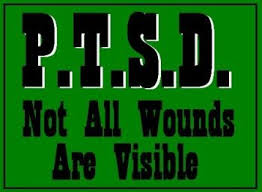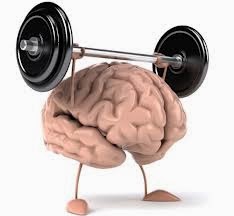Dear
Bloggers,
PTSD
is often a life sentence
Where
are the therapies, the support, the compassion for those dealing with
trauma?
Victims
suffering from post traumatic stress injuries are not only members of
the police or armed forces. Victims can be anyone; man, woman or
child. Most of them struggle every day with their trauma. Many women
who have suffered rape and other forms of abuse, suffer further from
treatment from the courts. Interestingly, they are said to have post
traumatic stress disorder (PTSD) while soldiers are said to have post
traumatic stress injuries.
Post
traumatic stress disorder is a wrong name. It is an injury. Disorder
suggests the victim is somehow responsible for not functioning
normally. PTSD victims are frightened and powerless but not
responsible for their injuries. Many (sexual) assault victims suffer
from PTSD and seemingly insignificant incidents can trigger panic
attacks and create difficulty in functioning. When someone with PTSD
commits suicide it is because they can no longer cope with their
injuries. Unable to receive satisfactory treatment they take the only
way they see out of their suffering.
We
like to make others believe that we treat everyone the same. We
don't. In my own surroundings I did a bit of survey about 49 per cent
said they would socialize with a person who they would call in their
normal life a friend with a mental health issue. Only question is
did all the respondents gave honest answers? About 51 per cent of
people around us would avoid “friends” with PTSD.
Trying
to have a normal loving relationship with any man is nearly
impossible. Innocent of any wrong, they suffer for the rest of their
lives. And even you have been together for many years they simply
cannot trust you fully anymore.
People
cannot gauge the victim's suffering. Even some doctors have
difficulty dealing with patients with PTSD and only offer
prescription drugs as a cure. Instead of being supportive, we
compound their injuries.
Talking
about the trauma may be an attempt by victims to heal, to be accepted
back into society. They turn to friends and family for help, but all
too often the emotional impact of the trauma isn't understood and
victims retreat into their shell for self protection.
A
simple incident, a voice, a word, a car, anything, can bring on
flashbacks and trigger the victim into a panic. Days and nights are
filled with nightmares, lack of sleep, sweats, and rage. The stigma
attached to victims often prevents many from seeking help until it is
too late and there is little or no chance of recovery.
Most
serious is the risk of suicide. When every waking moment is spent
feeling rejected and alone, in fear and exaggerated alertness, ready
to run in an instant, thoughts turn to suicide as the only way to
find peace. This is most of the times in the first phase of the
traumatized person.
Unable
to work, some eventually receive some social assistance, but it's
seldom enough for them to live comfortably. Reduced to below-poverty
existence and forgotten, these once-productive citizens become a
troubled group in society.
Recently,
EMDR (Eye Movement Desensitization and Reprocessing) a relatively new
treatment has shown some promise. But where does a victim get this
help? Only a few specialized psychologists and a couple of
psychiatrists are registered with EMDR
Many
victims, are losing their job and after two years of sick pay they
will get unemployed and they are struggling to live on disability
allowance. Instead of having a social life, they continue suffering,
unable to contribute in any positive way to their own care, they
depend on the care of their children or their families.
Where
is the equal treatment for PTSD victims? Lucky us our insurance gives
us kind of free health care? We cry out against human rights abuses
in other countries but deprive our victims of their right to proper
health care, to a life without fear, to security of their person?
It's time we helped these innocent victims instead of adding to their
abuse.
Traumatic
life-threatening events often leave emotional scars, which, like
physical scars, remain with an individual for the rest of their lives
I’m
so tired of having PTSD…in fact I am so tired of forgetting for a
moment that I have it only to have it come back and smack me in the
face. That is what my wife tells me after a period of making a step
back. I hate acknowledging it’s presence because then I have to
accept that it is never going away and that's though as a spouse.
No
matter how hard she tries, no matter how much work she does, PTSD
will always be there. On some level I know it is about managing
symptoms but tonight is a not to good one and I just wish it would go
away.
She
complained the other day to her therapist: I am so afraid of silly
things and I am jumping at the slightest touch from my partner. I am
not sleeping during the night and I am walking around the house.
Either way if I sleep or walkabout, I wake up exhausted. I’m eating
everything in sight that contains sugar and I am quickly rebuilding
that wall that exists between me and the rest of the world. I want to
return to old ways of coping…anything to feel comfortable in my
skin. My partner is very patient but I am tired of him needing to be.
I am tired of working so hard to do the right thing to only end up
needing his help and support.
Luckily
the racing thoughts are not back as full force as they once were and
I am still able to outrun them by a bit. I am tired of living each
day wondering is today the day I wont be able to manage the symptoms.
Is today the day I have the meltdown that let’s the whole world
know about my struggles with PTSD?
She
does sometimes get to a point where life is good and she feels strong
and in control of her symptoms. Today is not one of those days. I do
understand that the PTSD is the result of managers abuse that I
endured for 3 years. I also understand that the psychological abuse
was not my fault. And in this case I could not see what was happening
and even though I advised her to knock on some persons doors, none of
them stopped the abuse as nobody did stop the psychological abuse he
was such a “good guy” he had a free hand. What I don’t
understand is why it came with a life sentence.
I
think PTSD is different for everyone who experiences it. All the
emotions that accompanied the original trauma were as fresh as the
day you experience them. The worst part of PTSD for my wife are the
nightmares, the hyper-vigilance, the adrenalin rush and the stress of
always being focused on my surroundings. PTSD is, more than anything,
an in-your-face realization of your own mortal nature and of the
fragility of life itself. Headaches, fatigue, discomfort in places
where there are large numbers of people (7-10 and up), fully hit by
panic attacks, anxiety disorders, emotional numbing and inability to
have close relationships can be a problem as well.
Typical phrase from my wife: "Therapy, re framing, EMDR, and a variety of techniques have worked well for me, but I admit, there are many days it is just a relief not to have to leave the house."
The
Old Sailor,






































